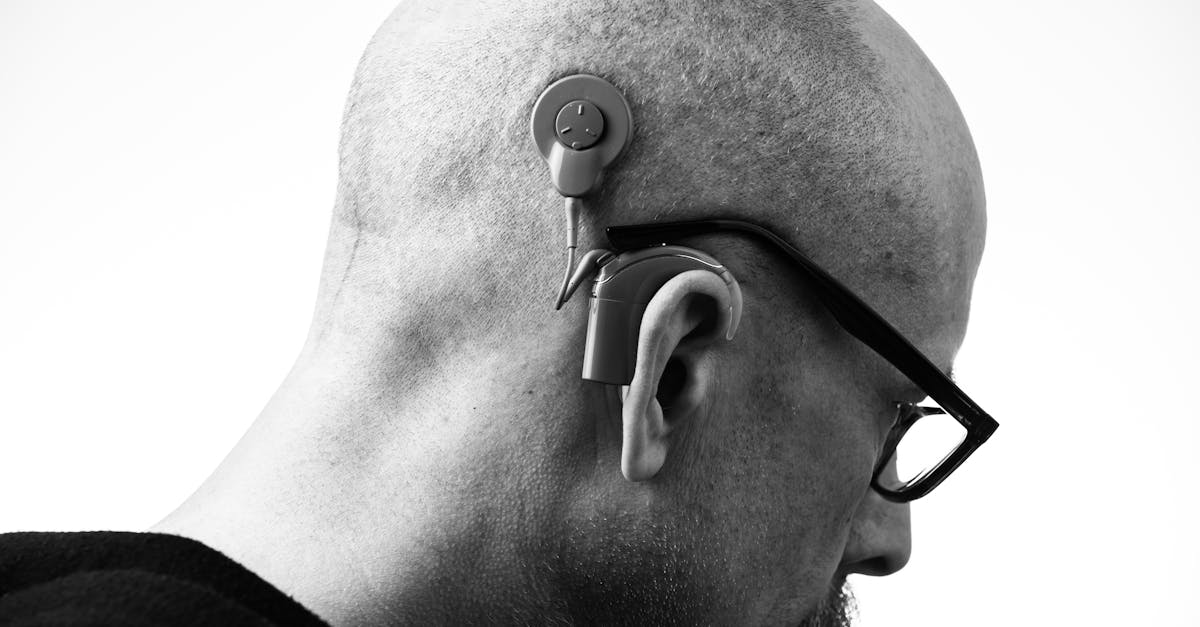Discover Independent Hearing Aid Centres for Quality Hearing Aid Solutions
Key Takeaways
- Grasping the Function of Hearing Devices
- The Significance of Hearing Device Centres
- All-Inclusive Hearing Device Solutions
- Hearing Device Repair Offerings
- The Necessity of Expert Hearing Attention
- Progress in Hearing Device Technology
Understanding Hearing Aids
Hearing aids are essential devices designed to assist individuals experiencing hearing impairment by amplifying sounds and improving their overall auditory experience. Various types of hearing aids cater to different levels of hearing loss, ensuring personalised solutions for users. Hearing Aid Centres play a crucial role in this process, offering professional hearing tests to accurately assess an individual's hearing capabilities. These centres not only provide fittings for hearing-aid devices but also emphasize the importance of hearing protection to prevent further hearing loss. Regular follow-ups and ongoing care are vital in maintaining the effectiveness of hearing aids, ensuring users receive comprehensive support as part of their hearing health journey.
Types of Hearing Aids
Hearing aids come in various styles designed to accommodate different levels of hearing loss and user preferences. Common types include in-the-ear (ITE) models, which are custom-fitted to the individual’s ear canal. Hearing Aid Centres often provide comprehensive services that include newborn hearing screening to ensure early intervention for infants. Audiologists play a crucial role in fitting these devices, ensuring they match the anatomy of the ear and the specific hearing needs of the individual.
Another popular category includes behind-the-ear (BTE) aids, which sit comfortably behind the ears and are suitable for a wide range of hearing losses. These devices can connect wirelessly to smartphones and other audio sources, functioning similarly to earphones. Clinics specialising in ear, nose and throat care often collaborate with Hearing Aid Centres to optimise the hearing solutions provided, ensuring a seamless experience for patients seeking improved auditory health.
Benefits of Using Hearing Aids
Hearing aids provide significant improvements in quality of life for individuals with hearing loss. By consulting with an audiologist at Hearing Aid Centres, patients receive expert guidance tailored to their specific needs. These professionals conduct diagnostic audiology tests, including audiometry, to assess hearing levels accurately. Aids can be customised based on the results, leading to more effective hearing. Regular visits to a community hospital or dedicated hearing centre can ensure that ear wax build-up and other common issues are promptly addressed, optimising the performance of the devices.
The integration of modern technology into hearing aids enhances user experience significantly. Telecare services offered by Hearing Aid Centres allow patients to stay connected with their audiologist remotely for ongoing support. This is particularly beneficial for those requiring follow-up care after their initial fitting. By keeping up with routine check-ups, users can ensure their hearing aids remain functional and effective, supporting their overall well-being in various environments. Regular assessments and adjustments lead to better auditory outcomes and greater independence in daily activities.
The Role of Hearing Aid Centres
Hearing Aid Centres play a crucial role in providing comprehensive support for patients experiencing hearing loss. These specialised clinics often work alongside hospitals to facilitate audiology services, offering diagnostic assessments that help determine the most appropriate solutions for individuals. Patients can expect a thorough evaluation of their hearing health, which may include various therapies designed to improve their quality of life. The trained professionals at these centres guide individuals through the selection of hearing aids, ensuring a personalised fitting tailored to their unique canal structures. Communication with Hearing Aid Centres can be easily achieved through telephone consultations, making access to expert advice and ongoing support more convenient.
Services Offered at Hearing Aid Centres
Hearing Aid Centres provide a range of essential services to enhance the hearing experience for their clients. These centres typically offer comprehensive assessments to determine the type of hearing aid that best suits individual needs. From the initial hearing aid fitting to ongoing hearing aid maintenance, they ensure that users receive personalised support throughout their journey. Regular hearing aid appointments help to monitor progress and can include adjustments to the new hearing aid as needed.
Repair services are also a crucial component of what hearing-aid centres provide. Many establishments specialise in hearing aid repairs, addressing common issues that users may face over time. This commitment to service extends to adults and children alike, ensuring that all clients have access to functional and reliable devices. With an emphasis on customer education, these centres guide individuals in proper care, optimising the lifespan and effectiveness of their hearing aids.
Choosing the Right Hearing Centre
Selecting a suitable hearing centre is crucial for addressing the unique needs of hearing aid users. Many Hearing Aid Centres offer a variety of services tailored to different levels of hearing difficulties. An independent hearing specialist can provide personalised assessments to determine the most appropriate digital hearing aid. This ensures that users receive the necessary support and solutions that align with their specific hearing health requirements.
Finding the right hearing care provider involves considering the range and quality of services they offer. A reputable hearing centre should provide comprehensive hearing services, including fitting and ongoing support for digital hearing aids. Look for centres that prioritise customer satisfaction and have a proven track record in delivering effective solutions to diverse hearing needs. This approach helps enhance the overall experience for individuals seeking effective management of their hearing difficulties.
- Verify the qualifications and experience of the audiologists at the centre.
- Check for a wide variety of hearing aid brands and models available.
- Ensure the centre provides follow-up care and regular maintenance of hearing aids.
- Look for reviews and testimonials from previous clients to gauge satisfaction.
- Inquire about trial periods for hearing aids to assess fit and comfort.
- Confirm that the centre offers education and support for hearing aid users and their families.
- Consider the convenience of location and accessibility of the hearing centre.
Comprehensive Hearing Aid Solutions
Hearing Aid Centres play a crucial role in providing comprehensive hearing aid solutions tailored to individual needs. These centres offer personalised hearing solutions designed to address particular hearing difficulties faced by individuals. Through detailed hearing assessments, top hearing specialists can recommend the most suitable digital hearing aids for each person's unique situation. Many of these centres also coordinate with NHS-funded hearing services, ensuring that clients receive the necessary support and resources for their hearing care journey. Emphasising ongoing care, Hearing Aid Centres are committed to enhancing the overall experience for those seeking to improve their hearing health.
Customised Hearing Aid Fitting
A proper customised fitting is essential for maximising the benefits of ear hearing devices. Hearing Aid Centres conduct a typical hearing assessment to determine the specific needs of each individual. This process ensures that the selected hearing technology, such as a RIC hearing aid, is tailored to match the user's hearing profile. Many hearingcare stores, including Boots Hearingcare, offer free hearing tests and checks to assist clients in making informed choices about their auditory health.
Personalisation of hearing aids goes beyond mere selection; it involves fine-tuning the devices to cater to the individual's lifestyle and preferences. This attention to detail is critical for those managing hearing/balance disorders, as it can significantly impact their quality of life. Customised fittings not only enhance comfort but also improve sound quality, allowing users to engage more fully with their environment and social interactions.
Ongoing Hearing Care and Support
Hearing Aid Centres provide invaluable ongoing support to individuals experiencing age-related hearing loss. After an adult hearing assessment, specialised audiologists can recommend suitable wearable hearing technology tailored to individual needs. These centres often offer free hearing tests to ensure that patients receive the most accurate aid assessment, enhancing their overall hearing and balance. The focus on continuous care allows patients to adapt their hearing aids and improve their hearing experience over time.
Regular follow-up appointments at a medical centre are crucial for monitoring hearing health. Audiologists can address any concerns regarding the performance of hearing aids and make necessary adjustments. This ongoing care is especially important for individuals who may have undergone newborn hearing screenings or those seeking solutions for progressive hearing difficulties. Establishing a strong relationship with Hearing Aid Centres ensures that patients receive comprehensive support throughout their hearing journey.
- Regular follow-ups help track changes in hearing capability.
- Audiologists can provide troubleshooting guidance for hearing aid issues.
- Access to additional resources and support groups may be available.
- Patients can receive advice on proper hearing aid maintenance.
- It's important to schedule periodic hearing assessments to adapt to any changes.
- Ongoing education about hearing loss and management options is provided.
- Consistent communication with audiologists fosters better hearing outcomes.
Hearing Aid Repair Services
Hearing aids, like any electronic device, can experience issues that necessitate repairs. Common problems include malfunctioning earmoulds or connectivity issues that can hinder their performance. Hearing Aid Centres, along with peripheral clinics, offer specialised services to diagnose and fix these problems, ensuring optimal functionality. A thorough consultation at these centres allows audiologists to assess the extent of the damage and recommend appropriate solutions. Professionals in audiological rehabilitation are equipped to address various concerns, whether related to new-born hearing screeners or adjustments in aid fitting. Proper maintenance and timely repairs contribute significantly to the longevity of hearing aids, ultimately enhancing the quality of life for those who rely on them.
Common Issues Requiring Repair
Hearing aids are sophisticated devices that may encounter a range of issues over time. One common problem involves sound distortion, often linked to the open ear piece or the ear mould needing adjustments. Experienced audiologists at recognised training centres, such as the hospital audiology department or a peripheral clinic, can address these concerns effectively. Regular maintenance ensures that devices like the current Phonak hearing aids function optimally, preventing more extensive repairs later on.
Battery-related issues can also arise, especially with rechargeable BTE hearing aids. If users experience short battery life or failure to charge, visiting a Hearing Aid Centre staffed by assistant audiologists may be necessary. They possess the expertise to troubleshoot these problems, ensuring that your hearing aids remain in prime condition. Recognising these common issues early can lead to a more efficient repair process and better overall hearing health.
How to Ensure Longevity of Your Hearing Aids
Regular maintenance is essential for ensuring the longevity of your hearing aids. Visits to Hearing Aid Centres allow audiology patients to receive professional care that can help minimise wear and tear. Routine appointments can include diagnostic audiometry tests that assess the performance of your aids. Such assessments may reveal issues that can be addressed before they become serious problems. In clinics, trained professionals not only provide repair services but also educate aid buyers on proper care techniques.
Proper handling of hearing aids also plays a crucial role in their lifespan. Keeping them safe from moisture and extreme temperatures can prevent damage. If a hearing aid is lost or damaged, some centres may offer a lost/damaged aid panel service, allowing for efficient replacement or repairs. For more complex cases, the complex case clinic within Hearing Aid Centres can provide tailored solutions, ensuring your aids remain functional for years to come.
The Importance of Professional Hearing Care
Professional hearing care is essential for individuals experiencing hearing difficulties. Hearing Aid Centres offer a range of services within their audiology department, ensuring comprehensive assessments and personalised care. Specialist devices are often tailored to meet the unique needs of each patient, with fitting appointments being a crucial part of the process. During these appointments, recordings may be taken to better understand the individual's hearing profile. Tinnitus therapy might be recommended, enhancing overall treatment approaches. The availability of dedicated treatment rooms provides a comfortable environment for patients, facilitating effective care and ongoing support. Regular follow-up appointments are vital for monitoring progress and making necessary adjustments to hearing aids or therapy strategies.
Evaluating Your Hearing Health
Hearing Health assessments typically begin at Hearing Aid Centres, where trained professionals can evaluate your auditory capabilities. This involves an initial consultation at the audiology reception, where various tests are conducted, including ear wax removal if necessary. These assessments often utilise several recordings to determine sound clarity and comprehension. Should there be any concerns, a reassessment appointment can be scheduled to ensure that the hearing devices meet your specific needs effectively.
The significance of regular evaluations extends to specialised locations such as Halton Hospital audiology and Warrington clinics. These facilities offer expert insight into your hearing health through continuous monitoring and support. The dedicated department aims to enhance your auditory experience by addressing any emerging issues, whether related to device functionality or overall hearing performance. Regular check-ups are essential to maintaining optimal hearing health and maximising the benefits of your hearing aids.
FollowUp Care and Maintenance
Regular follow-up care and maintenance are crucial for ensuring the optimal functioning of hearing aids. Hearing Aid Centres play a significant role in this process, offering a range of education services to help patients understand the intricacies of their devices. Patients can benefit from several leaflets provided by the centre, which explain how to properly care for components like the tubes. These resources also assist in addressing any specific requests regarding maintenance schedules or troubleshooting common issues.
The clinical experience of audiologists in Hearing Aid Centres is invaluable for ongoing support. They can provide expert medical opinions on any changes in hearing health and recommend adjustments or upgrades as necessary. Regular check-ups ensure that hearing aids are fitted correctly and functioning as intended, enhancing the user’s overall auditory experience. Engaging with a dedicated department for hearing care ensures that individuals remain informed and proactive about their hearing health.
Advancements in Hearing Aid Technology
Recent innovations in hearing aid technology have significantly enhanced the user experience, making devices more efficient and user-friendly. Modern hearing aids now come equipped with features such as Bluetooth connectivity, enabling seamless integration with smartphones and other devices. These advancements appeal to a broader range of individuals, expanding the market and increasing accessibility for those with hearing difficulties. Hearing Aid Centres play a crucial role in providing these services, ensuring that users can take advantage of the latest technology tailored to their specific needs. As technology continues to evolve, patients can expect even greater improvements in sound quality and customisation options from their hearing aids.
Conclusion
Hearing Aid Centres play a pivotal role in enhancing the lives of those with hearing loss. From assessing individual needs to providing customised hearing aid fittings, these facilities ensure that each client receives a new hearing aid tailored to their specific requirements. Regular hearing aid appointments facilitate effective hearing aid maintenance, which is crucial for optimal performance. Clients also benefit from expert guidance on common issues that may arise, leading to timely hearing aid repairs. By choosing a reputable hearing aid centre, adults can better manage their hearing health and enjoy the full benefits of improved auditory experiences.
FAQS
What services can I expect from hearingcare providers at hearing aid centres?
At hearing aid centres, you can expect comprehensive hearingcare services, including free hearing checks and consultations with specialists in the ear nose and throat department. They will explain how a hearing aid works, and you can explore options for adult hearing aids. Additionally, many centres offer online services, such as c2hear online, to assist with appeals if needed.
What are the qualifications of the staff working in hearing aid centres with respect to the hearing dept?
In hearing aid centres, the staff typically includes qualified audiologists and hearing care professionals who specialise in the hearing dept. They are trained to provide comprehensive assessments, fitting services, and ongoing support for individuals with hearing loss.
What should I look for when choosing between different hearing aid centres?
When choosing between different hearing aid centres, it is important to consider factors such as the range of services offered, the qualifications of the staff, customer reviews, and the types of hearing aids available. Additionally, visiting the centre to assess their customer service and equipment can help ensure you make an informed choice.
How can I determine the best hearing aid centres for my needs?
To determine the best hearing aid centres for your needs, consider factors such as the range of services they offer, the qualifications of their staff, and customer reviews. Additionally, you should look for accessibility and the technologies they provide to ensure they meet your specific hearing requirements.
What types of technology and products do hearing aid centres offer to improve hearing for individuals with hearing loss?
Hearing aid centres typically offer a range of advanced technology and products designed to enhance the hearing experience for individuals with hearing loss. These may include digital hearing aids, cochlear implants, assistive listening devices, and custom ear moulds, all tailored to address the specific needs of the user.





















































































































































